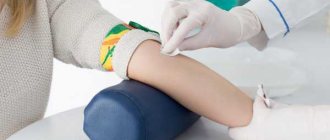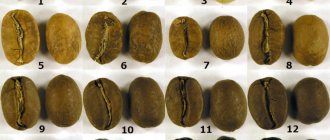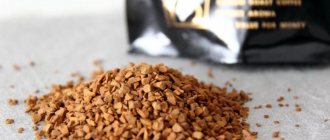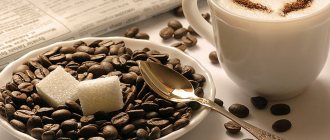Coffee before alcohol
Espresso drunk twenty minutes before the planned feast will not cause significant harm to health. In addition, thanks to this drink, the liver will begin to synthesize enzymes that facilitate the rapid processing of alcohol. Accordingly, wine drunk after coffee will not provoke severe intoxication.
The maximum effect can be achieved if you add cream to the espresso or eat cheese after drinking it. Proteins and milk fats protect the gastric mucosa from negative effects and prevent alcohol from entering the bloodstream.
How the relationship between coffee and liver cirrhosis was studied
Experts analyzed data from nine previously published studies involving more than 430 thousand people and found that two additional cups of coffee a day reduced the risk of developing cirrhosis by 44%.
“Cirrhosis can be fatal and there is little cure for the disease,” said study lead author Dr Oliver Kennedy from the University of Southampton in the UK. “It is therefore important to note that the risk of developing cirrhosis can be reduced by drinking coffee, an inexpensive, ubiquitous and well-tolerated beverage.”
More than a million people worldwide die from cirrhosis every year. Cirrhosis can develop from hepatitis, excessive alcohol consumption, immune disorders and fatty liver disease, which is associated with obesity and diabetes.
How to drink coffee correctly to reduce the risk of cirrhosis
Kennedy and his colleagues analyzed the results of earlier studies regarding average coffee consumption. Collectively, these studies included nearly two thousand patients with cirrhosis. In eight of the nine studies analyzed, increasing coffee consumption by two cups per day was associated with a significant reduction in the risk of developing cirrhosis.
People who drank one cup of coffee a day had a 22% lower risk of liver cirrhosis compared to people who didn't drink coffee at all. When drinking two cups of coffee a day, the risk of cirrhosis decreased by 43%, when drinking three cups - by 57%, and when drinking four cups - by 65%.
As the research progressed, additional questions arose. For example, one study found a much stronger association between a reduced risk of cirrhosis and drinking filtered coffee, but a much smaller effect for drinking brewed coffee.
“Just don’t think that a caramel latte with sugar and whipped cream is a good way to avoid cirrhosis,” warns Kennedy. In addition, it is not clear whether the choice of beans and brewing method matters. “Coffee is a complex mixture of hundreds of chemical compounds, and it is not known which one is responsible for protecting the liver,” says Kennedy.
Read also: How much does Russian style cost?
"It's also important to note that coffee is not a strong enough strategy to combat lifestyle choices that can seriously damage the liver," said Samantha Heller, senior clinical nutritionist at Lagone Medical Center, who was not involved in the study. “Unfortunately, although coffee contains compounds that have antioxidant and anti-inflammatory properties, drinking a few cups of coffee a day will not reverse the systemic damage to the liver that occurs as a result of being overweight or obese, being sedentary, drinking too much alcohol or eating a poor diet.”
Coffee with alcohol
The combination of coffee and cognac can be called classic. The addition of liqueur is no less popular. True, such a mixture cannot be considered safe. Alcohol leads to the active synthesis of dopamine, the pleasure hormone. After using it, your mood rises and a feeling of joy appears.
Alcohol has a sedative effect, dulls thinking and slows down reactions
Cognac helps lower blood pressure and dilate blood vessels. Caffeine has the opposite effect. When you mix coffee and alcohol, two substances that act differently enter your body at the same time. The result is increased heart rate, excessive stress on the nervous system, heart and blood vessels.
In addition, caffeine and alcohol lead to dehydration. Therefore, simultaneous consumption of coffee and alcoholic beverages in excessive quantities will lead to a severe hangover.
It will be possible to avoid negative consequences only if the permissible dosages are observed - for 100 ml of espresso there is only 20 ml of alcohol.
Is it possible to drink coffee with alcohol without harm to health?
You can drink coffee with alcohol without causing harm to your health, if you follow moderation and don’t get carried away. It’s not for nothing that there are many recipes with the addition of cognac, rum, liqueur and other types of alcohol.
A ratio of 100 ml of coffee to 30 ml of alcohol is considered safe. Such proportions will not harm health, but on the contrary will be useful for the prevention of cardiovascular diseases, provided they are consumed no more than 3 times a week.
To prepare the drink, use only bean coffee and elite brands of alcohol.
As I promised in one of the previous posts, today we will talk about the facts and prejudices associated with drinking coffee and alcohol. Tea was also on the list - but I decided to give it special attention, so it will be discussed later.
Addiction to coffee and alcohol are traditionally considered bad habits. For a complete picture of a vicious lifestyle, all that is missing is cigarettes (well, and other drugs).
The consumption of drinks containing caffeine is often cited by ordinary people as one of the causes of hypertension and other vascular diseases, and there is nothing good in alcohol, and there seems to be no point in discussing it.
To drink or not to drink
However, behind the stigma of harm that has long hung on these drinks, interesting facts are hidden. Thus, a study was conducted at the American Medical University Johns Hopkins to prove or disprove the role of coffee in the development of hypertension.
Read also: How to beat fumes at home
Scientists observed thousands of men drinking this drink daily for 33 years. Consuming 1 cup of coffee per day increased systolic blood pressure by 0.19 mm Hg. Art., and diastolic - by 0.27 mm Hg. Art.
(heredity, body mass index, cigarette smoking, alcohol consumption and physical activity were taken into account).

After completing the study, the authors concluded that coffee consumption was associated with a very small increase in blood pressure, which appears to play a very minor role in the development of hypertension.
As for the beneficial effects of coffee, it has been proven that it improves mental and physical performance, and also increases resistance to stress.
It makes no sense to call coffee the elixir of longevity - despite all the “unexpected” advantages of this drink, there are also a number of contraindications to its use. For example, frequent consumption of coffee is not recommended for people with high levels of anxiety, pregnant women and people suffering from diseases of the gastrointestinal tract.
In addition, do not forget that coffee turns teeth yellow.
"French Paradox"
The situation with the benefits of alcohol is special. Many people know that red wine contains polyphenols - substances that work as antioxidants. Thus, daily moderate consumption of wine has a positive effect on the body.
The body's reaction to caffeine after alcohol
Alcohol and caffeine are incompatible. This fact has been proven by scientists long ago. Under the influence of alcohol, the body relaxes. This effect is achieved due to a lack of oxygen in the cells of the central nervous system. Certain areas of the brain stop responding to various stimuli.
The natural stimulant has a stimulating effect. Even its minimal amount increases the myocardial oxygen demand. Accordingly, the following negative changes are noted:
- arrhythmia;
- increased blood pressure;
- anxiety;
- excessive nervousness.
Does coffee help you sober up?
Coffee after alcohol is not able to neutralize the effects of alcohol. On the contrary, its consequences persist:
- intoxication;
- lack of critical thinking;
- absent-mindedness.
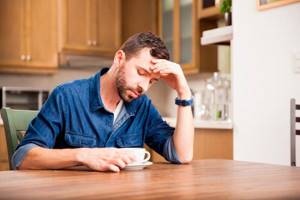
Scientists conducted an experiment during which it was proven that caffeine does not have a sobering effect . Its stimulating effect is blocked by toxins.
Espresso drunk while intoxicated creates only the illusion of sobriety and partially covers up the smell of alcohol. Against this background, a person may drink even more alcoholic beverages, which will negatively affect his health.
If you only drank a glass of wine or a mug of beer, then caffeine can give you a little vigor, but for a maximum of half an hour.
Subtleties of making coffee with vodka
It is important to consider several important factors that apply to most recipes.
- Sugar or sweeteners must be mandatory components, otherwise the coffee will be bitter and sour.
- It is recommended to use espresso as a base. Americano or other weak coffee will not always go well with vodka.
- Alcohol will not be felt if you use cheap vodka.
- Lemon, lime, milk and cream are suitable ingredients to complement the taste of the drink.
- It wouldn’t hurt to add spices – cardamom, cinnamon, vanilla.
Does coffee help with a hangover?
Due to alcohol abuse, a toxic substance called acetaldehyde accumulates in the body. It is this that provokes the appearance of unpleasant symptoms and has a negative effect on the liver.
Coffee will help with a hangover due to the presence of the following properties:
- diuretic effect, which indirectly accelerates the process of eliminating toxins;
- reducing the concentration of liver enzyme and facilitating the functioning of the organ;
- stimulation of the nervous system.

Espresso can lead to the following negative changes:
- excessive load on blood vessels, heart, central nervous system;
- gagging;
- hypertension.
When symptoms of a hangover appear, it is extremely important to drink enough fluids to clear the blood of harmful substances.
It would be useful to take a sorbent. And only after that you can drink a cup of espresso.
When is coffee good for a hangover?
Coffee for a hangover will only help with mild symptoms. With its help you can cheer up for a short time. After this, the remaining alcohol must be removed with plain water.
If you have a severe hangover, there is no point in starting your morning with espresso. Doctors recommend first cleansing the body, eliminating unpleasant symptoms, and using coffee drinks to consolidate the results.
People often drink iced coffee when they have a hangover. It is noted that when ice is added, it is more easily accepted by an exhausted body and is a good tonic. It is perfect for those who have to work all day after a noisy feast.
The belief that caffeine has a positive effect on a person's condition after drinking alcohol is highly exaggerated. In fact, a natural stimulant will do more harm than good in this situation. Therefore, before using it, you need to evaluate the pros and cons. A shot of espresso may not be appropriate at the moment.


